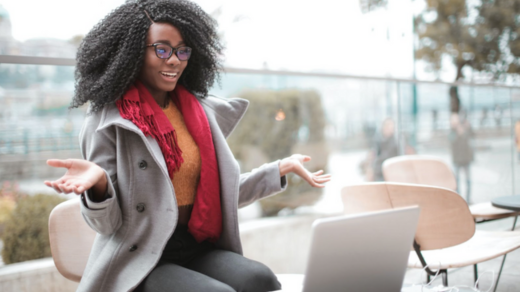As digital marketing continues to evolve, partnerships between businesses and agencies are becoming more crucial than ever. A Portland Digital Marketing Agency today is not just a service provider—it’s a strategic partner. Businesses are increasingly seeking holistic collaborations that drive not only leads, but brand equity, customer engagement, and long-term growth. With the rapid pace of change in SEO, paid media, social platforms, and AI integration, agencies must proactively redefine how they partner with clients to remain competitive and future-ready.

This article explores the emerging trends shaping the future of digital marketing partnerships and outlines actionable strategies for businesses and agencies alike. Whether you’re a startup searching for a results-driven agency or an established firm looking to deepen an existing relationship, understanding these shifts is key to success.
1. Moving from Vendor to Strategic Partner
The traditional client-agency model—where a company hires an agency to “do marketing”—is quickly becoming outdated. Future partnerships will thrive on shared goals and proactive collaboration.
Example: Collaborative Planning
Instead of waiting for clients to request ad campaigns, agencies should be involved in quarterly planning, product launches, and long-term brand strategy. For example, a Portland SaaS startup might involve their agency in beta product launches to get feedback on target personas and messaging before development wraps up.
How to Execute:
- Set recurring joint planning meetings (monthly or quarterly).
- Share business goals and performance KPIs openly.
- Involve agencies in internal brainstorming and marketing roadmapping.
2. Data-Driven Decision Making
Data is at the core of every effective marketing campaign. The future of partnerships will depend on real-time insights and transparent analytics that inform strategy in a collaborative manner.
Example: Shared Dashboards
Rather than siloed reporting, agencies and clients should use shared live dashboards (like Google Looker Studio or Databox) that track campaign performance, lead quality, and ROI.
How to Execute:
- Establish key metrics at the beginning of the partnership (e.g., cost-per-lead, conversion rates).
- Integrate CRM data and marketing platforms into a unified dashboard.
- Schedule monthly analytics reviews to align on what’s working and what needs tweaking.
3. AI and Automation Integration
Agencies that embrace AI tools—like content generation, predictive analytics, and programmatic advertising—will offer a competitive edge to their clients.
Example: AI for Ad Optimization
A Portland eCommerce company working with a forward-thinking agency might use AI-powered tools like Adzooma or Revealbot to automatically optimize Facebook ad bids, targeting, and creative elements based on live performance data.
How to Execute:
- Identify repetitive tasks that can be automated (e.g., email nurturing, A/B testing).
- Experiment with AI-based content tools (like Jasper or ChatGPT) for blog outlines and ad drafts.
- Educate clients on what AI can and cannot do to manage expectations.
4. Niche Expertise and Vertical Focus
Clients increasingly seek agencies that understand their industry inside and out. Generalist agencies may struggle unless they offer specialized knowledge in specific sectors.
Example: Industry-Specific SEO
A healthcare brand in Portland may prefer a digital agency that already knows HIPAA compliance, patient persona behavior, and Google’s E-A-T requirements for medical content.
How to Execute:
- Agencies should build and showcase case studies within their niche markets.
- Offer tailored services (e.g., B2B lead gen funnels, local SEO for healthcare, influencer partnerships for fashion brands).
- Attend and speak at industry-specific conferences to build authority.
5. Full-Funnel Campaign Execution
Future partnerships will demand full-funnel services—from awareness to conversion to retention. Agencies must be able to execute across every stage, not just top-of-funnel tactics like PPC or blog content.
Example: Full Funnel for a Local Gym Chain
For example, a Portland agency might help a gym chain launch awareness ads on Instagram, retarget site visitors with limited-time offers, and follow up with personalized SMS or email nurturing to boost signups.
How to Execute:
- Map the customer journey together with your client.
- Create campaigns targeting each stage: TOFU (blog, social ads), MOFU (webinars, comparison pages), BOFU (free trials, consultations).
- Use CRM and marketing automation platforms to move leads down the funnel.
6. Flexible and Agile Contracts
With rapid shifts in market trends, agencies and clients must adopt agile frameworks rather than long, rigid scopes of work. This ensures adaptability and quicker pivots.
Example: Monthly Sprints
Instead of 12-month retainers, some agencies now offer rolling monthly sprints where priorities shift based on performance and changing market needs.
How to Execute:
- Break projects into sprints with defined deliverables (e.g., SEO content creation, ad testing, landing page optimization).
- Hold sprint retrospectives to evaluate performance and re-prioritize.
- Maintain a shared backlog of future tasks that can be pulled in based on impact.
7. Transparent Communication and Culture Fit
Successful partnerships rely not only on skill but on cultural alignment. Agencies that value open communication, feedback, and empathy will thrive.
Example: Slack and Weekly Standups
A modern Portland Digital Marketing Agency might integrate directly into a client’s Slack channels, join team huddles, and provide async video updates for transparency.
How to Execute:
- Use communication tools clients already rely on (Slack, Loom, Trello).
- Set communication SLAs—e.g., response within 24 hours, weekly updates.
- Regularly request client feedback to improve processes and relationships.
In conclusion, the future of digital marketing partnerships in Portland and beyond lies in deep collaboration, shared strategy, and a willingness to evolve together. As the industry matures, clients will gravitate toward agencies that don’t just execute tactics, but think like business partners. For any company seeking sustained growth, aligning with a forward-thinking Portland Digital Marketing Agency may be the smartest move in an ever-changing digital landscape.



